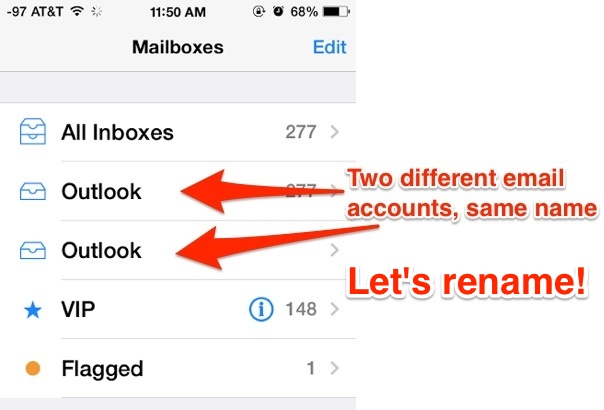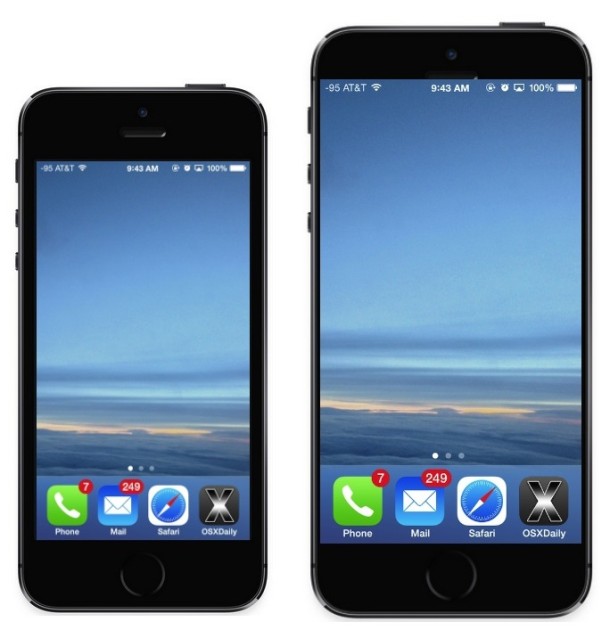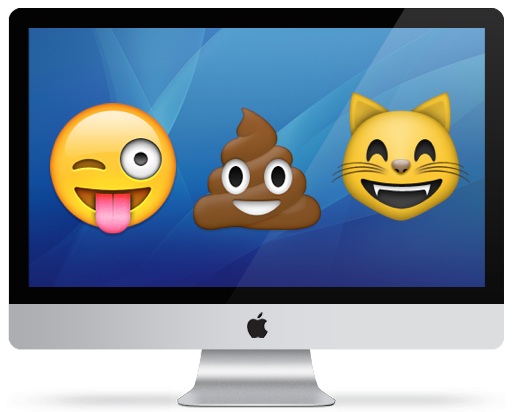Fixing a Scratched iPhone or iPad? Find Device Model Numbers in Settings

If you ever need to identify what model number an iPhone, iPad, or iPod touch is, typically the easiest thing to do is just flip the device over and look on the lower back panel. Alongside the trampstamp of regulatory details, FCC ID, IC, and the various symbols, you’ll find the devices model number. But what if the back of the iOS device is so scratched and damaged, that the model and other identifying details is completely obscured?
If you’re unable to read the model number off the back of a scratched iPhone, iPad, or iPod touch, there’s another option available through iOS. It’s buried fairly deep in some obscure settings panel along with some sleep inducing incredibly interesting other documents and regulatory details, but nonetheless the important number remains easily accessible if you need it from a damaged device:
Read more »

 The Mac has long used the straight quote style for double and single quotes, looking like ” and ‘ respectively. It’s been that way for as long as I remember, but if you’d like to change the quote style to something else, perhaps a bit more fanciful, you can do so through a settings adjustment.
The Mac has long used the straight quote style for double and single quotes, looking like ” and ‘ respectively. It’s been that way for as long as I remember, but if you’d like to change the quote style to something else, perhaps a bit more fanciful, you can do so through a settings adjustment.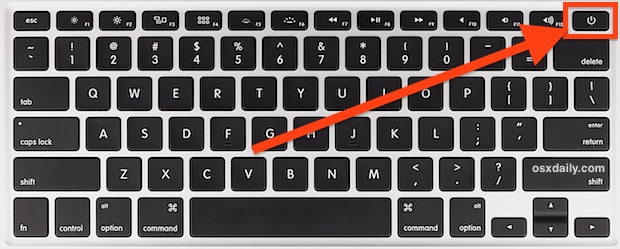
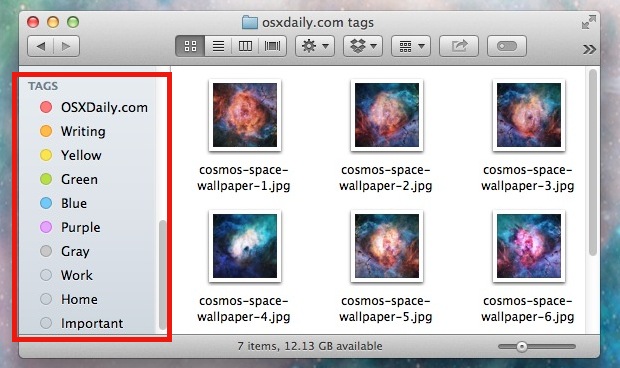
 You may have noticed that some iOS apps will turn dark as if they’re being launched and simultaneously rename themselves as “Cleaning…”, seemingly out of the blue and at random. This is demonstrated happening with the attached iPhone screenshot, showing the Instagram app going through the process. So the big question for many users is, what’s going on here and why does that iPhone or iPad app say it’s cleaning?
You may have noticed that some iOS apps will turn dark as if they’re being launched and simultaneously rename themselves as “Cleaning…”, seemingly out of the blue and at random. This is demonstrated happening with the attached iPhone screenshot, showing the Instagram app going through the process. So the big question for many users is, what’s going on here and why does that iPhone or iPad app say it’s cleaning? 
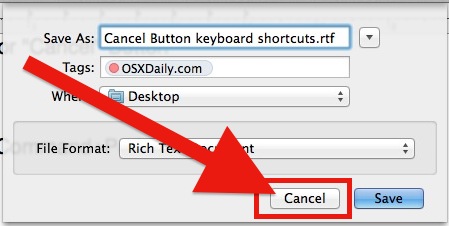
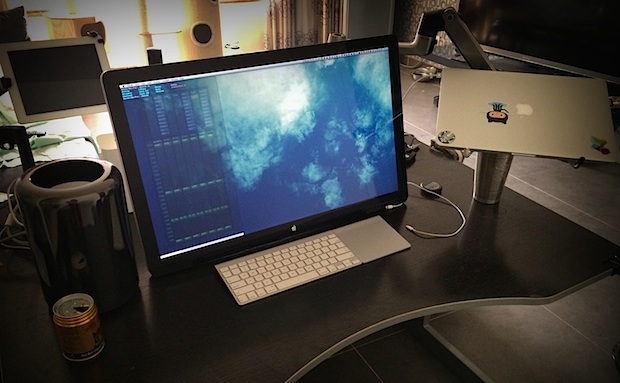
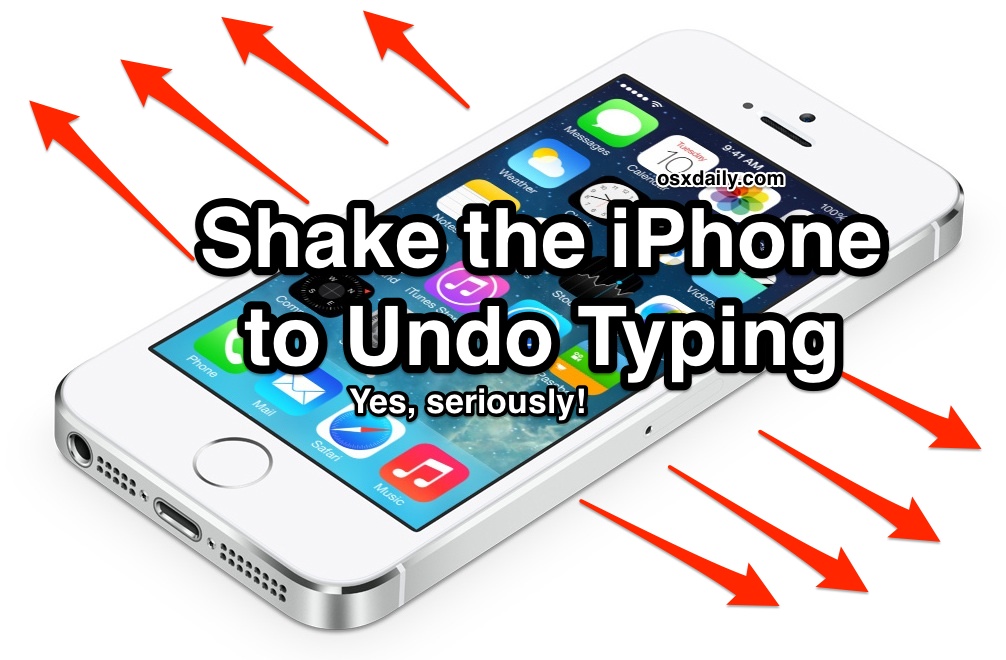
 If you need to record some simple sound or audio on a Mac, you can do so easily using a bundled app that comes with Mac OS X, without having to download any third party utilities. That app is QuickTime, which may come as a surprise to some users as it’s typically thought of as a movie viewing application, but believe it or not it has video,
If you need to record some simple sound or audio on a Mac, you can do so easily using a bundled app that comes with Mac OS X, without having to download any third party utilities. That app is QuickTime, which may come as a surprise to some users as it’s typically thought of as a movie viewing application, but believe it or not it has video,  If you need to find out just how fast your wi-fi link speed is, or rather, the speed of which your Mac is connected to a particular wireless router, you can find this data through the Network Utility app that is bundled in every version of Mac OS X.
If you need to find out just how fast your wi-fi link speed is, or rather, the speed of which your Mac is connected to a particular wireless router, you can find this data through the Network Utility app that is bundled in every version of Mac OS X.  If you have multiple email accounts setup with Mail app on your iPhone or iPad, you’ve probably noticed that each email account name defaults to the provider, like “iCloud”, “Gmail”, “Outlook”, and “Yahoo”. Those names aren’t the most explanatory, and it can become even more confusing when you have two mail accounts from the same service provider setup with Mail app, where you may end up with “Gmail” and “Gmail” or “Outlook” and “Outlook”, one of which may be
If you have multiple email accounts setup with Mail app on your iPhone or iPad, you’ve probably noticed that each email account name defaults to the provider, like “iCloud”, “Gmail”, “Outlook”, and “Yahoo”. Those names aren’t the most explanatory, and it can become even more confusing when you have two mail accounts from the same service provider setup with Mail app, where you may end up with “Gmail” and “Gmail” or “Outlook” and “Outlook”, one of which may be 